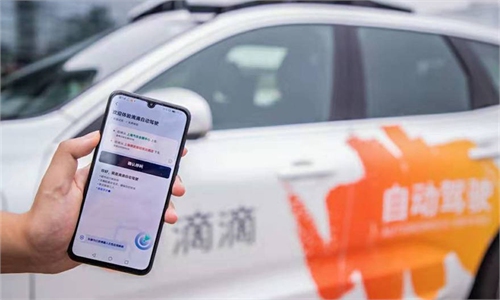SOURCE / INDUSTRIES
China to add a ‘one-click car-hailing’ function for the elderly

The headquarters of DiDi in Beijing Photo: VCG
China's Ministry of Transport (MOT) said on Monday that it is studying a plan to optimize online car-hailing software by adding the "one-click car-hailing" function to provide convenience for the elderly.The new function is expected to begin trials by the Spring Festival travel rush, or Chunyun in Chinese, the ministry said on its official website.
A slew of online car-hailing platforms including Didi Chuxing, Shouqi Taxi, Caocao Taxi and Meituan Dianping participated in an MOT meeting held on Friday centered on discussing how to provide convenience for the elderly.
Representatives introduced their experience and practices in serving elderly strengthening mobility services, and stated that they will enhance demand analysis and program demonstration to further improve the service quality for older passengers, and effectively facilitate their travel.
Implementation plan includes adding the "one-click car-hailing" function; speeding up the opening of the phone-hailing service on the major online car-hailing platforms while maintaining taxi call-hailing services; major platforms will aim to provide priority dispatch services for the elderly.
In a circular on November 24 issued by the General Office of the State Council, it called for efforts to meet the demands of the elderly while promoting a digitally integrated society.
Responsible departments should maintain traditional service while also encouraging innovation, and solve problems that elderly people have encountered in using intelligent technologies, according to the circular.
To facilitate daily transportation of the elderly, responsible departments are required to guide online car-hailing operators to improve their services. Orders could be made through the telephone, and priority should be given to elderly people. Also, methods to make appointments with doctors should be improved for the elderly, including via telephones, through the internet and in the hospital, said the circular.

